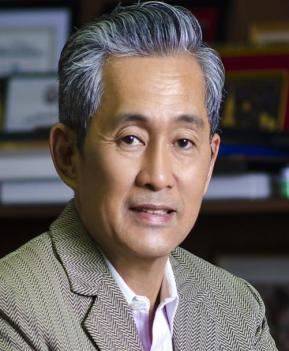TECH4GOOD

The Philippines aspires to achieve upper-middle status by 2025. It can keep pace with some of its ASEAN neighbors if it does. The country has the elements needed to achieve that: A nation rich in culture and resources, a young population, a talented workforce, and resilience. While it has seen significant progress in recent years, achieving sustained and inclusive growth requires more than just infrastructure, sound economic policies, political will, and favorable global trends to achieve those goals. It hinges on a fundamental shift in mentality – fostering a growth mindset among Filipinos. It is a crucial factor often overlooked but seems to be the missing ingredient we all need if we want to see a better Philippines for everyone.
Developed by psychologist Carol Dweck, a growth mindset believes that intelligence and abilities are not fixed but can be developed through effort, learning, and perseverance. Individuals with this mindset view challenges as opportunities to grow, embrace mistakes as learning experiences, and persist in the face of difficulty. Conversely, a fixed mindset sees intelligence and failures as innate and unchangeable, leading to discouragement at difficulties, fear of disappointments, and practically just giving up on life.
A growth mindset fosters a culture of risk-taking, innovation, and experimentation. Filipinos are known for their creativity and resourcefulness (madiskarte).They will more likely pursue innovative ideas, launch new businesses, and adapt to the ever-changing global landscape. This fosters a culture of innovation, leading to breakthroughs in areas like agriculture, technology, and social entrepreneurship. However, cultural tendencies, like “crab mentality” (pulling others down) and a fear of taking risks, can hinder progress. A growth mindset actively combats these tendencies.
The world constantly evolves, demanding a workforce that can adapt to new technologies and changing landscapes. A growth mindset emphasizes the value of learning throughout life. It will encourage Filipinos to embrace lifelong learning, continuously upskill, not be satisfied with their knowledge, and stay relevant and competitive in the global job market.
Additionally, a growth mindset encourages Filipinos to work together toward common goals for the community and the country. Everyone wants always to put their best foot forward. It fosters open communication, where diverse perspectives are valued and used to find creative solutions to national challenges. It fosters a collaborative spirit, where individuals believe everyone can learn and grow together. Everyone understands that learning happens best through interaction and exchanging ideas. This collaborative spirit is essential for tackling complex issues like poverty, inequality, and environmental degradation.
Filipinos are no strangers to challenges — natural disasters, social issues, family and personal failures, and economic fluctuations. A growth mindset will equip Filipinos to bounce back from setbacks and get them out of cages that restrain their growth. They will start to view difficulties as opportunities to learn and adapt, fostering a more resilient and proactive citizenry. For many Filipinos today, fear of failure holds them back and pushes them just to accept where life would take them. A growth mindset reframes setbacks as stepping stones, encouraging perseverance and a willingness to take calculated risks. This is crucial for tackling social issues like poverty and corruption.
Shifting toward a growth mindset requires a multi-pronged approach. Fixed mindsets may be deeply ingrained in our cultural norms. Overcoming these beliefs requires persistent education and awareness campaigns. Integrating growth mindset principles into the education system, workplace culture, and community programs can be transformative. This can involve teaching everyone about the concept, promoting lifelong learning, encouraging effort and perseverance, and celebrating learning from mistakes. We must develop a national narrative highlighting success, discipline, good manners, proper conduct, and the importance of marching to the same beat toward national progress. Ultimately, fostering a growth mindset starts with the individual.
Cultivating a growth mindset is not a one-time effort nor a quick fix but a long-term investment in the future of the Philippines. It requires a collective effort – individuals, families, educational institutions, businesses, and the government working together. With it, Filipinos can tap into their immense potential, talent, innate goodness, and resourcefulness to propel the nation toward a brighter future. Remember, the Philippines’ greatest resource is its people. The nation can achieve its full potential by empowering Filipinos to believe in their ability to learn and grow and not accept a mediocre standing in society.
As the Filipino saying goes, “Nangangailangan ng sipag at tiyaga upang magtagumpay” (It takes hard work and perseverance to succeed). With a growth mindset, Filipinos can transform this proverb from a simple truth to a national mantra that fuels progress and helps achieve our collective economic aspirations. ([email protected])
(The author is an Executive Member of the National Innovation Council, lead convener of the Alliance for Technology Innovators for the Nation (ATIN), vice president of the Analytics and AI Association of the Philippines, and vice president of UP System Information Technology Foundation.)